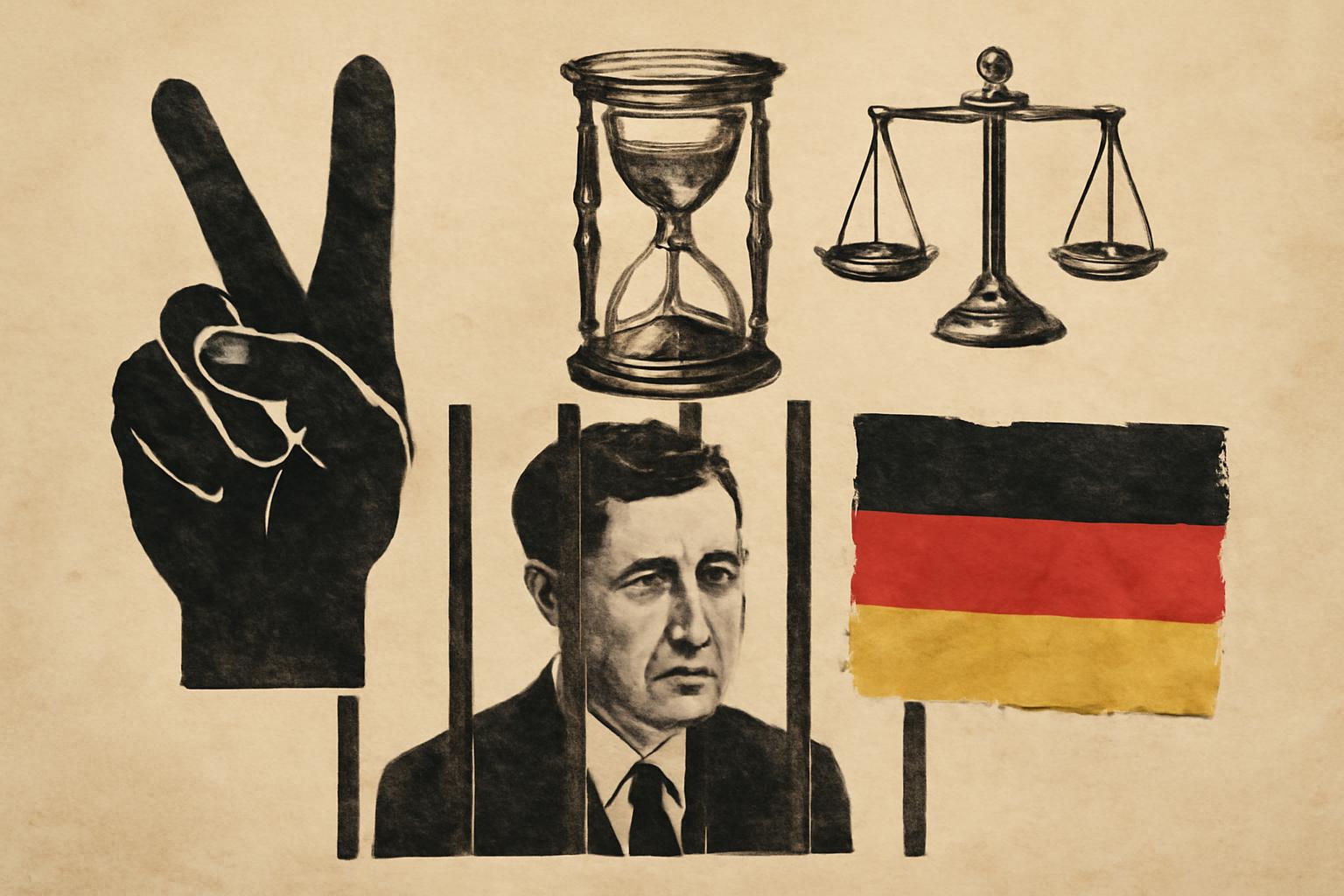Three intertwined tracks are playing out in Germany: a cohort around a Reichsbürger‑styled project, a legal timetable that stretches months into years, and a state apparatus that keeps people in limbo while accusations compete with evidence, ritual, and bureaucratic tempo. Two defendants have already left pre‑trial detention; one case was separated and paused on health grounds; another defendant testified extensively but says he never grasped the group’s aims; a third case continues with procedural friction. The three quartiers—Frankfurt (leadership), Stuttgart (the armed/operational arm), Munich (a mixed group with clerical and “private secretary to the prince” roles)—drill forward at different paces, and the only area where momentum seems to appear is Stuttgart, including a rapid handling of a shooting incident in Reutlingen. Arrests happened last December; by the coming December the main suspects will have spent roughly three years in pre‑trial detention. There is no fixed legal cap on detention before conviction, but the rough reality is a long, creeping accumulation of time in custody for people who have not yet been proven guilty. And while the ideology of the group is heterogeneous, the threat they pose is read through a single lens: a radical assertion of power against the lived order.
From a libertarian vantage, the real question is not who these people are or what they believed, but what the state is permitted to do in the name of preventing violence and preserving order. The pre‑trial detention regime, especially when stretched over years, is a stark illustration of the state’s capacity to invade personal liberty in pursuit of collective security. If you accept the premise that the burden of proof rests with the state to show guilt, then the longer the detention lasts without a conviction, the more you erode the very rights the law is supposed to protect. Hayek warned that centralized knowledge and planning collapse under the weight of complexity; the law is supposed to be a general rule of conduct, not a tool to micromanage danger by bureaucratic decree. A system that keeps people imprisoned largely on risk assessments and charges far from adjudicated facts drifts toward a soft despotism where “security” becomes a license to rule by procedure, not by truth.
Nozick would remind us that the legitimate state’s only end is the protection of individual rights, not the management of collective fears. The protection of rights does not entitle the state to foreclose rights in advance, on the grounds of probable crime or possible ideology. Pre‑trial detention must be narrowly tailored, time‑bounded, and strictly justified by concrete danger, with automatic, periodic review. Otherwise it becomes a dissent against the very principle of due process that Nozick defends: you cannot sacrifice innocence on the altar of “public safety” and call it justice. If a suspect poses no imminent risk of flight or harm, the burden lies on the state to prove otherwise, not on the individual to prove innocence while remaining imprisoned.
Rand would insist that the state’s legitimacy derives from protecting the life, liberty, and property of each person, not from wielding power to mold society’s beliefs or to neutralize arbitrary ideologies. The mere existence of a diverse, even odd, ideological ecosystem does not grant the state a perpetual license to detain, surveil, or muzzle dissent. A government that uses the specter of “coup attempt” or “military arm” to justify mass or lingering restrictions on individual rights betrays the very moral premise it claims to defend: that men and women are ends in themselves, not means to a public good defined by bureaucrats and judges. The ideology of the group, whether it sits under Reichsbürger banners or otherwise, does not license the state to erase the line between crime and conscience, nor to treat all who dissent as suspects.
The real danger here goes beyond one courtroom drama. It’s a test of how a modern liberal order resists the temptation to substitute procedural rigor for moral legitimacy. The Munich friction, the delayed verdicts, the separated cases—all of this signals the systemic challenge of disciplining state power without surrendering liberty. The solution, from a libertarian lens, is to pull the leash tight: enforce clear, constitutionally bounded rights; cap pre‑trial detention with stringent, independent oversight; insist on prompt, fair trials; and rely more on targeted, proportionate means of defense and enforcement than on indefinite coercive custody. If private security or other non‑state mechanisms can complement protection of rights without inventing new forms of coercion, they should be preferred to bureaucratic overreach.
Liberty, in this view, requires that the state prove guilt, not merely allege danger; that association and belief do not become prima facie evidence of criminal intent; and that the arc of justice bends toward freedom, not toward the expansion of state control in the name of security. The case, whatever the outcome, is a reminder: the strongest guardrail for civilization is a government that respects the boundaries of individual rights, that limits coercion to the narrow perimeter of defense against aggression, and that never mistakes fear for legitimacy. The lesson is stark and simple—freedom is incompatible with a state that treats precaution as permission to imprison.
